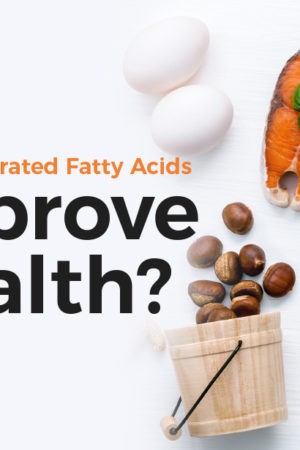Sunflowers are beautiful, but they’re more than that. Did you know they are full of polyunsaturated fats? Sunflower oil is full of lipids that are considered a healthy addition to your diet. I’m sure you’ve heard time and time again how unhealthy butter or margarine is for you and that olive oil is the better choice. Why? Olive oil contains unsaturated fats, just like sunflower oil. Read on to find out why.
Understand Structure and Function
Always keep in mind that the function of something is largely defined its structure. The same philosophy applies to lipids. The general structure of a lipid (the stuff that makes up fat) is a long chain made of carbon with two oxygen molecules at one end and hydrogen linked to every carbon that an oxygen molecule isn’t linked to.1 They all look like that. Where they differ is in the bonds between the carbons. When the chain gets a kink in it because it forms a double bond with another carbon and loses two hydrogen atoms; then it becomes unsaturated. Monounsaturated fatty acids have one kink. Polyunsaturated fatty acids have multiple kinks. You obviously cannot see these kinks, but you can see the result of them. Butter is a saturated fat with no kinks, and it’s solid at room temperature. Oils are unsaturated with kinks, and they’re liquid at room temperature. Now, let’s apply this to sunflower oil.
Degradability of Food
Labs have been doing incredible things with sunflower oil. One lab, in particular, was looking at sunflower oil for methane production and enhancing diets’ nutritive value. Now, on the surface, this has little to do with your diet, but the science has everything to do with it. Degradability and the production of gas are two characteristics of metabolism. Of course, when you metabolize food, you degrade it. Also, when you metabolize, your cells actually produce gasses as a by-product of metabolism (carbon dioxide). In this study, rates of degradability and gas production actually increased. In other words, food was degraded faster and gas levels, consequently, increased in the presence of sunflower oil.
Love Your Pancreas
Now, let’s consider your pancreas. Love your pancreas. Your pancreas is home to tons of different specialized cells that make insulin, glucagon, somatostatin, pancreatic polypeptide, and ghrelin.2 You don’t need to know what all of these are, just know that if you didn’t have them, your digestive tract would be all out of whack. You can understand this just by looking at insulin and glucagon. Insulin stimulates your cells to take up glucose. Glucagon stimulates your liver to produce glucose. Without insulin, you get diabetes. Without glucagon, your cells would die from lack of energy.
With that in mind, another group of researchers looked at the effect of sunflower oil on the pancreas.3 Over the span of your life, bad diet habits and lifestyle lead to pancreatic disorders and impact the aging process of that organ. There’s something called coenzyme Q (CoQ) that was administered to the rats in the study who had damaged pancreases. Its effectiveness was largely influenced by the lipids consumed alongside it. Sunflower oil was the main fat in the diet, and CoQ was able to improve the pancreas structure and endocrine function. To clarify, CoQ is like a vitamin that’s found in every cell in your body. It is an integral part of the pathway involving the production of ATP (energy). It’s also thought to be a powerful antioxidant which is why it was used in this study: to reverse the damage done by stress in the body.
Sometimes beauty runs deeper than the surface. Sunflowers are a prime example.
NUTRITIONAL DISCLAIMER
The content on this website should not be taken as medical advice and you should ALWAYS consult with your doctor before starting any diet or exercise program. We provide nutritional data for our recipes as a courtesy to our readers. We use Total Keto Diet app software to calculate the nutrition and we remove fiber and sugar alcohols, like erythritol, from the total carbohydrate count to get to the net carb count, as they do not affect your blood glucose levels. You should independently calculate nutritional information on your own and not rely on our data. The website or content herein is not intended to cure, prevent, diagnose or treat any disease. This website shall not be liable for adverse reactions or any other outcome resulting from the use of recipes or recommendations on the Website or actions you take as a result. Any action you take is strictly at your own risk.
- Research Shows Improvement in Anorexia Nervosa Condition With Keto - August 6, 2018
- New Potential for Ketogenic Diet to Prevent Alcohol Withdrawal Syndrome - August 1, 2018
- Woman on Early Menopause Saved By Keto - July 25, 2018




